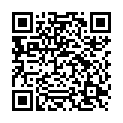|
|
|
| Module code: MAB_24_A_1.06.TKD |
|
1V+1U (2 hours per week) |
|
2 |
| Semester: 1 |
| Mandatory course: yes |
Language of instruction:
German |
Assessment:
Written composition on a technical topic
[updated 05.11.2020]
|
MAB_19_A_1.06.TKD (P241-0282) Mechanical and Process Engineering, Bachelor, ASPO 01.10.2019
, semester 1, mandatory course
MAB_24_A_1.06.TKD Mechanical and Process Engineering, Bachelor, SO 01.10.2024
, semester 1, mandatory course
|
30 class hours (= 22.5 clock hours) over a 15-week period.
The total student study time is 60 hours (equivalent to 2 ECTS credits).
There are therefore 37.5 hours available for class preparation and follow-up work and exam preparation.
|
Recommended prerequisites (modules):
None.
|
Recommended as prerequisite for:
|
Module coordinator:
Prof. Dr. Bernd Heidemann |
Lecturer: Prof. Dr. Bernd Heidemann
[updated 29.10.2023]
|
Learning outcomes:
After successfully completing this course, students will be able to differentiate between data and information and convey technical information with a situationally appropriate data set.
They will be able to develop an oral presentation and present it to an audience.
Students will be able to explain technical information in writing in the form of documentation using suitable illustrations, and generate it in a computer system.
They will be able to research specific topics in databases and examine the results critically.
[updated 05.11.2020]
|
Module content:
Basics of interpersonal communication: Models of communication
The difference between data and information
Presenting and describing technical information Meaning of texts, illustrations (also photos, films, video sequences), diagrams, tables
Tasks and types of communication pertaining to technical information: Talks, lectures, presentations, written documentation
Basic structure and variations of an oral presentation/a presentation on a technical subject
Tasks and types of written documentation on technical information
Basic structure and variations of written documentation
Methods for researching literature and sources in libraries and databases
Working correctly with sources (meaningful use, correct citation, creation of source and bibliography)
Basics of text and image processing with computer-aided systems, e.g. Microsoft WORD
[updated 05.11.2020]
|
Recommended or required reading:
Böglin: Wissenschaftliches Arbeiten Schritt für Schritt, UTB Fink Verlag.
Kornmeier: Wissenschaftlich schreiben leicht gemacht, UTB Fink.
Hering, Hering: Technische Berichte, Springer Vieweg.
Kollmann, Kuckertz, Stöckmann: Das 1x1 des Wissenschaftlichen Arbeitens, Springer Gabler.
Kellner: Reden Zeigen Überzeugen, Hanser Verlag.
Voigt: Erfolgreiche Rhetorik, Oldenbourg Verlag.
[updated 05.11.2020]
|

